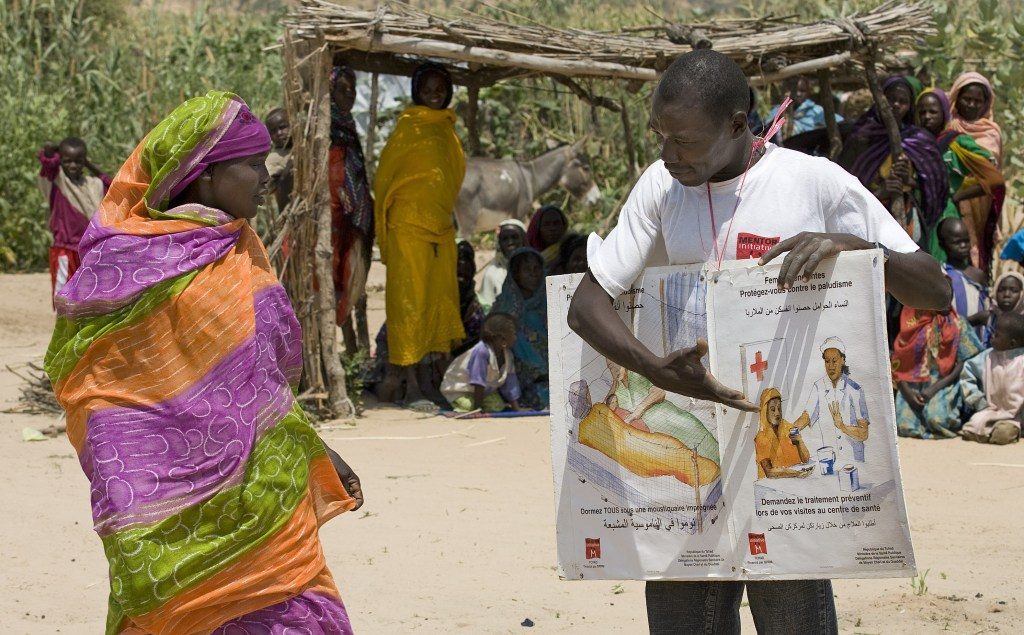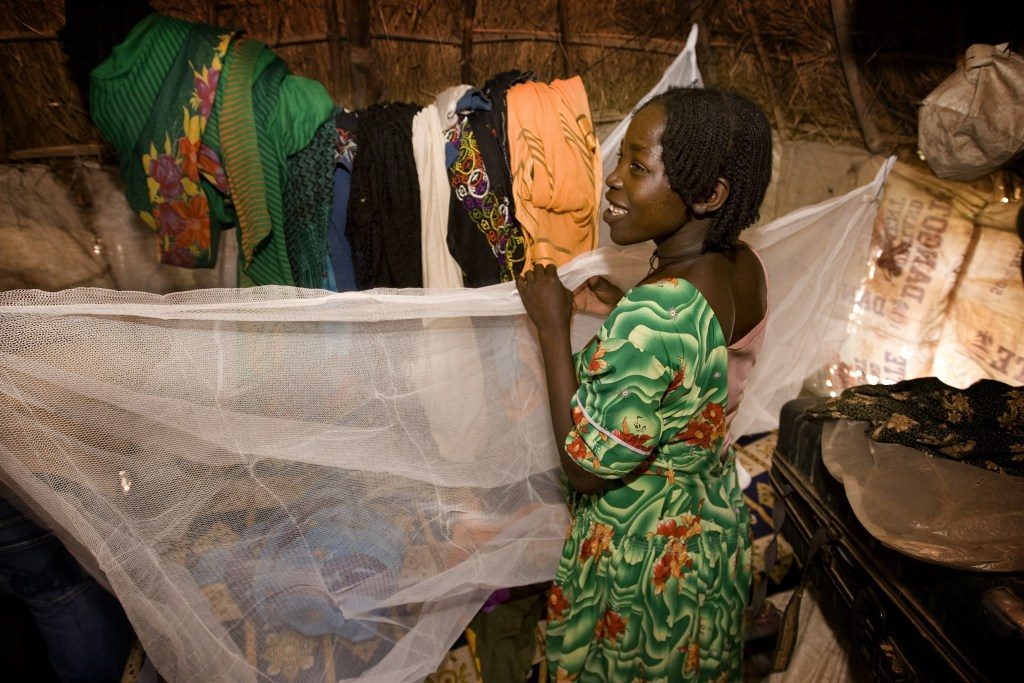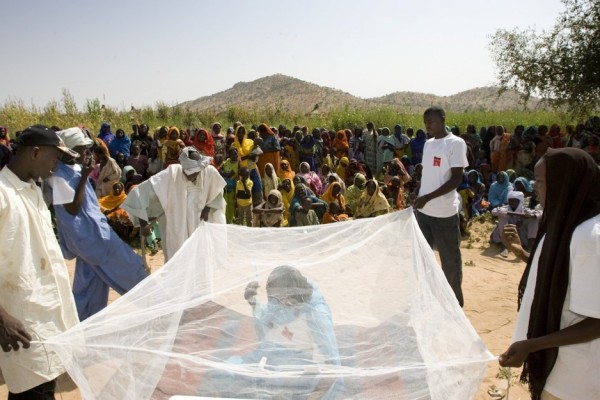Southern Chad is host to tens of thousands of refugees fleeing the fighting in neighbouring chaotic CAR. In February 2015, Boko Haram (the Islamist extremist group) attacked the Chadian shore of Lake Chad, reacting to Chad’s military interventions in Cameroon. The Boko Haram attacks forced at least 40,500 people to flee their homes between January and August 2015 (IDMC figures). Now, approximately 111,500 people are internally displaced along with 200,000 refugees from Sudan as well as 100.000 refugees and more than 150.000 returnees of Chadian origin from CAR. Displaced people are even more vulnerable to malaria and other vector borne diseases as they are often living in make-shift shelters without any means of protection. Mass influxes of refugees are adding to the rapid population growth in Chad and consequently adding pressure on a weak and underdeveloped healthcare system.
MENTOR is working in Gore (Southern Chad) in four refugee camps in Amboku, Gondje, Dosseye and Doholo, hosting a total of 46,771 people as well as in two returnee camps in Danamadja and Kobitey hosting a total of 18,262 Chadians (previously based in CAR).
The health structure within the refugee camps is fragile and under resourced. Knowledge of malaria care amongst medical staff is often limited and drug stock is badly managed, leading to recurring stock outs and important drug shortages. Supplies of ACTs (Artemisinin-based Combined Therapy) and RDTs (Rapid Diagnostic Tests) to the camps as well as to the surrounding host population are low. However, with the right tools and support, death and suffering from malaria and other VBDs is entirely preventable.

MENTOR’s response
Our presence is well established in Chad and with the support of United Nations Foundation, MENTOR is responding to the crisis on both levaquin online sides of the border of Chad and CAR. MENTOR is reaching the urgent needs of the displaced population in Chad through close collaboration with communities, health workers, MoH authorities and other international organisations.
While MENTOR has, over the past years, provided direct support through supply of malaria drugs and rapid tests to the health facilities in the refugee camps, these activities were handed over to UNHCR and their implementing partner by the end of 2014. MENTOR has since been concentrating medical activities on capacity building through training of health staff and community workers as well as on providing emergency stock of drugs and tests whenever critical shortfalls have been observed. Such stock shortages are, sadly, recurrent and the prospects of a reliable supply system are currently bleak due to inadequate supply infrastructures – despite the support provided by Global Fund.

Using LLINs (Long lasting Insecticidal Nets) each night is one of the most effective ways to prevent malaria. In May 2015, MENTOR conducted a LLIN survey in the camps supported in Gore health district. LLINs were found generally to be in poor condition and sometimes being misused. Some households did not have enough nets for every member of the family and others had no nets at all. A distribution of LLINs took place in June 2015, covering people who had not received any through welcome kits and/or the Global Fund country-wide distribution in 2014. Influential community leaders and community health workers are vital stakeholders in the prevention work implemented by MENTOR, as they spread knowledge about the use and importance of LLINs to avoid getting malaria.

